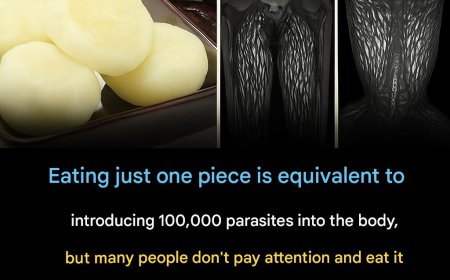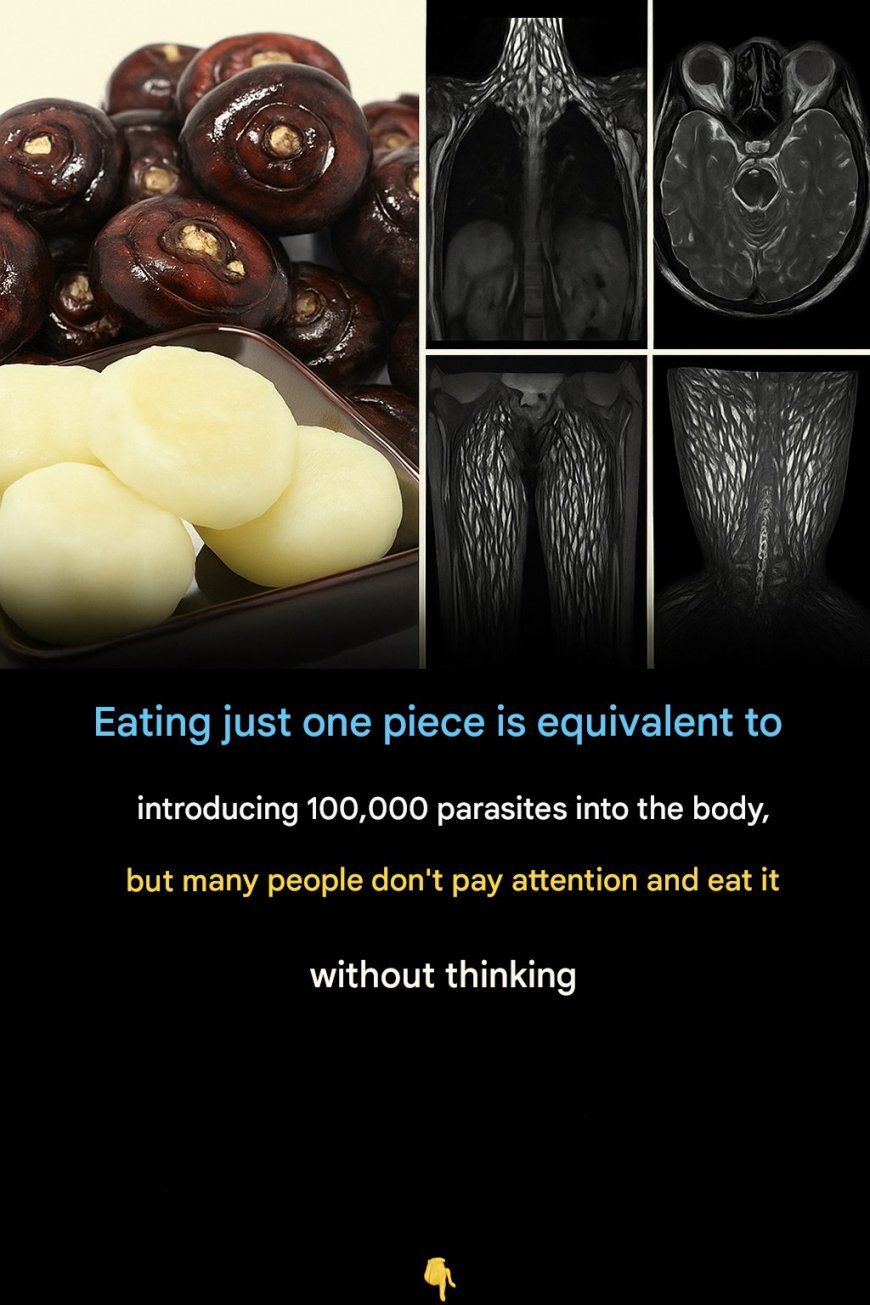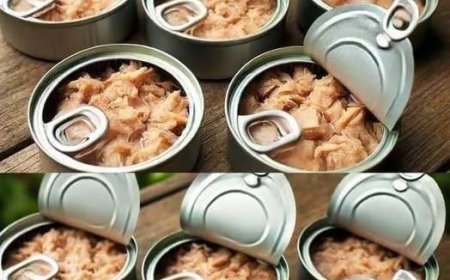Even one bite of this product is already harmful, but many people still consume it without concern
Most people enjoy their favorite meals without a second thought, trusting that what they eat is safe. However, even a single bite of improperly prepared or contaminated food can expose the body to invisible threats — harmful parasites that can seriously affect your health. These microorganisms, though microscopic, have the potential to cause lasting digestive, metabolic, and systemic problems that may take months or even years to fully diagnose.
2.
Even one bite of this product is already harmful, but many people still consume it without concern.
Foodborne parasites pose a significant food safety risk. These microscopic organisms, including amoebas, nematodes, hookworms, and tapeworms, can cause numerous health problems once introduced into the human body. Symptoms of parasitic infections can include digestive upset, gastrointestinal infections, anemia, and colitis. Although parasites are often invisible to the naked eye and odorless, they can be eliminated through good hygiene and proper cooking. To protect yourself and your loved
ones, it’s important to know which foods may contain harmful parasites. This article lists common foods to watch out for to prevent parasite-related health risks.
Common foods at risk of parasitic infections
Undercooked meat (pork, beef, and fish)
Raw or undercooked meat, including pork, beef, and fish, can contain parasites such as tapeworms and roundworms. These parasites are transmitted when the meat has not reached the proper internal temperature. For example, undercooked pork can contain the Trichinella parasite, which causes trichinellosis, and fish can contain the Anisakis nematode, which causes anisakiasis. These parasites can cause serious health problems, so it is essential to cook meat thoroughly.
Raw or Undercooked Mussels and Other
Bivalves Bivalves (oysters, clams, and rapani) are filter-feeding organisms that accumulate parasites from polluted waters. They can carry trematodes (flatworms) that infect humans. Consuming raw or undercooked bivalves significantly increases the risk of ingesting these parasites and can lead to long-term health consequences.
Unwashed fruits and vegetables
Fresh produce that is not properly washed or peeled can carry parasites such as Toxoplasma gondii (which causes toxoplasmosis) and Giardia (which causes giardiasis). The soil in which fruits and vegetables are grown may be contaminated, and improper handling during transport or at the market can lead to contamination. Proper washing is essential to reduce the risk of infection.
Unpasteurized Dairy Products
Raw milk, cheese, and yogurt can contain dangerous parasites such as Cryptosporidium and Giardia. These parasites are resistant to common cleaning and disinfection methods, making raw dairy products a significant risk. Pasteurization kills harmful microorganisms and makes the products safer to consume.
Polluted Water:
Drinking or using contaminated water to wash food can introduce parasites into the body. Water sources can be contaminated with Giardia, Entamoeba histolytica, and other pathogens. Always drink clean, filtered, or boiled water, especially when traveling in areas with poor sanitation.
Instructions for Safe Consumption
Proper Heat Treatment of Meat
Pork: Internal temperature 145°F (63°C).
Beef: Internal temperature of 160°F (71°C) to kill any parasites.
Fish: Internal temperature 145°F (63°C) or until flesh turns white/dark and flakes easily with a fork.
Proper heat treatment of bivalve mollusks
Cook bivalves over high heat (steam, boil, grill) to kill parasites. Always discard any that do not open during cooking.
Wash produce
Wash fruits and vegetables thoroughly under running water before eating, cutting, or cooking. For fruits and vegetables with thick skin (potatoes, cucumbers), use a brush. If possible, peel the outer layers to further reduce risks.
Avoid raw dairy products
. Choose pasteurized dairy products. Check labels to ensure the product is pasteurized.
Provide clean water.
Drink water from reliable sources, especially when traveling. If local quality is questionable, use bottled or filtered water. Boil water for at least 1 minute to kill parasites and other pathogens.
Serving and Storage Tips
Proper Meat
Storage Store raw meat separately from ready-to-eat foods in the refrigerator. Use airtight containers to prevent cross-contamination and ensure meat is thoroughly cooked before serving.
Freezing Fish
If you’re eating raw or lightly processed fish, freeze it for at least 24 hours before eating it to eliminate parasites like anisakis. Freezing is an effective method of parasite control, especially for fish intended for sushi.
Wash your hands and surfaces
Always wash your hands with soap and water before cooking and after handling raw meat or seafood. Clean and disinfect all surfaces and utensils that have come into contact with raw food to prevent cross-contamination.
Production Storage
Store unwashed fruits and vegetables in a cool, dry place. After washing, refrigerate them to extend their shelf life. Wash them immediately before eating, not before storing.
Risk-reducing options
Heat-treated or pasteurized alternatives
If you enjoy sushi, oysters, or other raw foods, opt for cooked alternatives to minimize your risks. Many restaurants offer safe, cooked sushi or grilled bivalves.
T.ap the p.hoto to v.iew the full r.ecipe.




























